Analysis: How presidential hopefuls outlined foreign policy plans in 4th debate
By Alireza Akbari
Six contenders vying for the presidency of the Islamic Republic of Iran outlined their detailed blueprints for the country’s foreign policy during the fourth televised debate on Monday.
The debate marked the penultimate event hosted by the Islamic Republic of Iran Broadcasting (IRIB), following three previous debates that focused primarily on economic, social, and cultural issues respectively.
Campaigning has been in full swing for the June 28 snap presidential election, with the six hopefuls in the race sparing no effort to impress the electorate with their meticulous blueprints and manifestos.
The fifth and final debate will be held on Tuesday morning, three days before the polling.
The fourth televised debate, equally enthralling as the previous three, unfolded against the backdrop of the remarks of the Leader of the Islamic Revolution, Ayatollah Seyyed Ali Khamenei.
He underscored the importance of maintaining discipline during campaigning and not providing the ground for the country’s enemies to be happy with their remarks.
The fourth debate had three distinct segments. The first two segments saw the contenders discuss strategies for navigating the landscape of foreign policy opportunities and threats, while the third segment allotted each candidate six minutes to make closing remarks.
Segment 1
In the first segment of Monday’s presidential debate, the spotlight was on a myriad of opportunities facing the Islamic Republic in the realm of foreign policy.
The six hopefuls found themselves facing probing questions that delved into their strategies for fortifying an economy-centric foreign policy, achieving equilibrium in their foreign policy agenda, fostering stronger ties with neighboring nations, and empowering the resistance axis.
Mohammad Baqer Qalibaf, the parliament speaker and one of the six candidates in the fray, invoked top anti-terror commander General Qassem Soleimani that "opportunities lie in the heart of threats."
The veteran politician outlined his commitment to navigating the country’s foreign policy landscape within the confines of the Islamic Republic's legal framework.
He expressed willingness to engage in negotiations and honor agreements that yield economic benefits, citing the economic blocs of BRICS and the Shanghai Cooperation Organization (SCO) as promising avenues for neutralizing sanctions.
Iran gained full membership in both blocs under the presidentship of Ebrahim Raeisi, one of the biggest foreign policy accomplishments credited to him.
The seasoned diplomat further underscored the importance of collaborating with emerging global powers and outlined plans to enhance Iran's air transit capacity, with ambitions to transform the southern Iranian city of Chabahar into the nation's secondary economic hub.
Masoud Pezeshkian, former health minister and senior lawmaker, drew inspiration from the directive of Imam Ali (AS) to emphasize the importance of "comprehensive justice" in building “consensus.”
He extolled the Islamic Republic of Iran's economic assets, including oil, gas, strategic geopolitical positioning, and crucial East-to-West transit routes.
Pezeshkian lauded the achievements of the Raeisi administration in bolstering ties with neighboring countries and underscored the imperative of resolving issues such as the Financial Action Task Force (FATF) and sanctions to facilitate foreign economic activities.
He advocated for leveraging Iran's potential in the BRICS and SCO frameworks through “diplomatic negotiations and domestic unity” to secure a robust share of the international market.
Amir-Hossein Ghazizadeh Hashemi, a former lawmaker and head of the Foundation of Martyrs and Veterans Affairs, outlined his vision of “peace, tranquility, and non-interference of outsiders” in relations with neighboring countries.
He commended President Raeisi's diplomatic feats, citing improved relations with Saudi Arabia, Egypt, and Azerbaijan, as well as Iran's membership in BRICS and SCO.
The presidential contender also lauded President Raeisi's efforts in spearheading Operation True Promise, a retaliatory military action in response to an Israeli attack on the Iranian consulate in Syria.
Emphasizing Iran's strategic depth in the West Asia region, he underscored the symbiotic relationship between Iran and its neighboring nations.
Mostafa Pourmohammadi, former minister of interior affairs, underscored the intrinsic link between domestic and foreign policies, asserting that internal strength is the key to realizing external aspirations.
He echoed the Leader of the Islamic Revolution's sentiment on the significance of national participation in fortifying the country's authority and repelling external threats.
Pourmohammadi championed regional agreements, economic diplomacy, and joint projects as pillars of the country’s effective foreign policy.
Saeed Jalili, a former nuclear negotiator and head of the top security body, expounded on the concept of “creating opportunities” in foreign policy by leveraging commonalities and fostering interactions.
He prioritized currency flow and job creation as cornerstones of a successful foreign policy that fuels economic growth.
Jalili underscored the pivotal role of embassies as export platforms and advocated for bolstering economic ties with neighboring nations to catalyze Iran's economic prosperity.
Alireza Zakani, the Mayor of Tehran and former lawmaker, championed an ideology-driven foreign policy rooted in dignity-based diplomacy.
Zakani articulated a vision of elevating Iran's global stature through harnessing domestic capabilities and adhering to the teachings of the founder of the Islamic Revolution Imam Khomeini, and the directives of the Leader of the Islamic Revolution Ayatollah Seyyed Ali Khamenei.
He pledged to enhance Iran's image, fortify the axis of resistance, pursue economic diplomacy to bolster national power and secure a stronger geopolitical foothold through an unwavering commitment to national ideals and directives.
Segment 2
In the second segment of the fourth debate held on Monday, the focus shifted toward looming threats and challenges confronting the Islamic Republic, with candidates speaking on their strategies to combat Iranophobia, mitigate sanctions, as well as priorities in their foreign policy agendas.
Qalibaf portrayed the late Iranian anti-terror commander General Soleimani as a guiding light in the area of "field diplomacy."
Qalibaf emphasized Iran's successful pushback against American hegemony in the region through collaboration with neighboring countries, underscoring the need to capitalize on economic opportunities.
He pledged a dual approach of lifting sanctions and bolstering the economy to foster growth.
Domestically, he outlined plans for a comprehensive support system for Iranians, focusing on bridging income gaps, healthcare, essential goods provision, housing, and automobile imports.
Pezeshkian championed an expert-driven approach to address political and security challenges, highlighting the significance of public support and consensus as pivotal assets.
He lauded Iran's defense capabilities – including missiles and drones – as a source of national pride and emphasized the importance of expert-led decision-making processes.
Ghazizadeh Hashemi commended President Raeisi's efforts in circumventing sanctions and boosting the country’s economic health, noting significant revenue gains during Raeisi’s three-year tenure.
He stressed the necessity for adept diplomacy, citing the former president’s successful and result-oriented negotiations with both Eastern and Western countries.
The presidential candidate further underscored the role of intelligence, persistence, and strategic negotiations in foreign policy, advocating for a strong stance in defending Iran's national interests.
Pourmohammadi highlighted the significance of community-centered institutions in domestic policy and emphasized the cultivation of a culture of resistance.
He underscored the importance of fortifying Iran's resilience and unity in the face of external pressures.
Jalili promoted a vision of empowering every Iranian citizen to play a significant role in the nation's progress, emphasizing the potential for foreign policy to enhance Iran's national assets and elevate its global standing.
He advocated for a proactive approach in leveraging economic tools to counteract sanctions, emphasizing the need for robust negotiation strategies and infrastructure readiness.
Zakani drew on his experience as the Mayor of Tehran to showcase his foreign policy acumen, advocating for policies that distribute national wealth equitably among the Iranian populace.
He outlined supportive measures he plans to implement if elected as the president, focusing on leveraging Iran's domestic capabilities and maximizing benefits from its membership in BRICS and SCO.
Zakani emphasized the importance of harnessing Iran's potential on the international stage to bolster the country's economic strength and geopolitical influence.
Segment 3
In the final segment of the debate, each of the six presidential candidates was granted a six-minute window to encapsulate their policy blueprints and visions for the Islamic Republic's future.
Qalibaf, drawing on his extensive experience as the former Mayor of Tehran, emphasized the imperative for Iran to elevate its economic prowess to match its formidable defense capabilities.
Reflecting on his twelve-year term as the Mayor of the capital city, Qalibaf pledged unwavering progress, devoid of excuses, echoing the resolute leadership he exhibited during his mayoral tenure.
Pezeshkian, addressing the Iranian populace, articulated a foreign policy framework grounded in principles of honor, wisdom, and pragmatism.
For Pezeshkian, the essence of honor lies in enhancing the quality of life for citizens, underscoring that foreign policy should be a conduit for national prosperity and safeguarding the nation's security.
Ghazizadeh Hashemi underscored the essence of action over rhetoric in foreign affairs.
Beyond mere diplomatic negotiations, he advocated for proactive measures aimed at dismantling the incentives behind sanctions imposition.
The hopeful emphasized the necessity of showcasing strength as a prelude to both confrontation and reconciliation, asserting the need to assert Iran's capabilities assertively.
Pourmohammadi delineated his foreign policy objective as fostering economic growth, outlining a dual-track strategy focused on lifting and neutralizing sanctions concurrently.
Emphasizing the inviolability of national interests as his administration's guiding principle, he underscored the critical importance of economic development in Iran's foreign policy landscape.
Jalili championed a proactive approach to foreign policy, advocating for the maximization of opportunities to safeguard Iran's rights and national interests.
Jalili called for a robust strategy to neutralize sanctions and make those imposing sanctions against Iran regret it, positioning Iran as a formidable force on the global stage.
Zakani emphasized the art of negotiations grounded in wisdom and experience.
Stressing the significance of national unity and consensus, Zakani posited that progress is contingent on fostering cohesion and solidarity among the populace, underscoring the pivotal role of collective determination in advancing Iran's interests diplomatically
Iran FM declares ‘good start’ as US–Iran talks conclude in Muscat
Iran strongly condemns 'terrorist' mosque blast in Islamabad
Iran enters talks backed by national power, popular support: MP
France, UK involved in assassination of Muammar Gaddafi's son: Reports
Shia mosque explosion in Islamabad kills more than 30, injures over 160
Iran defense minister in Azerbaijan to boost security, defense ties
Iran-US talks in Oman focus solely on nuclear issue: Envoy
Ex-PM Olmert admits Israel committing ‘ethnic cleansing’ in West Bank


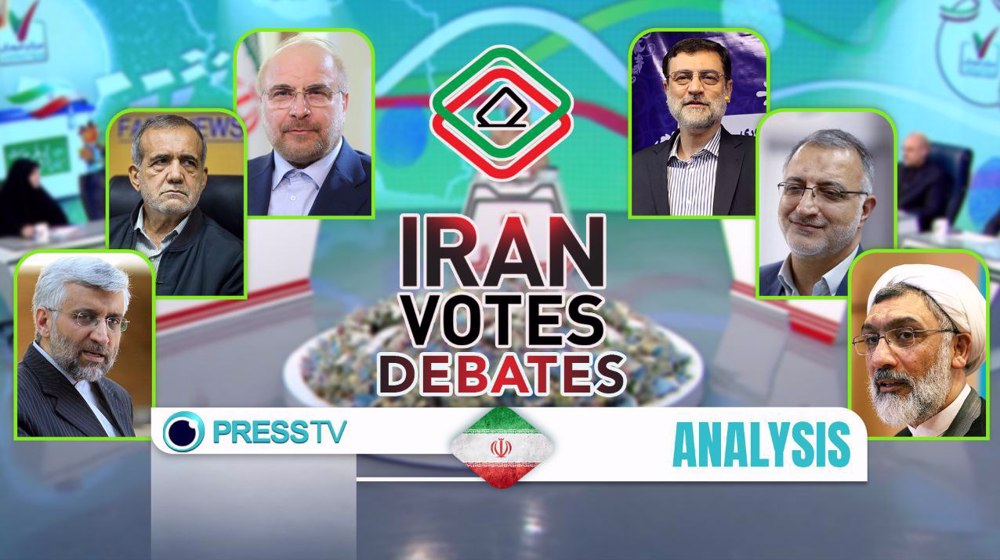
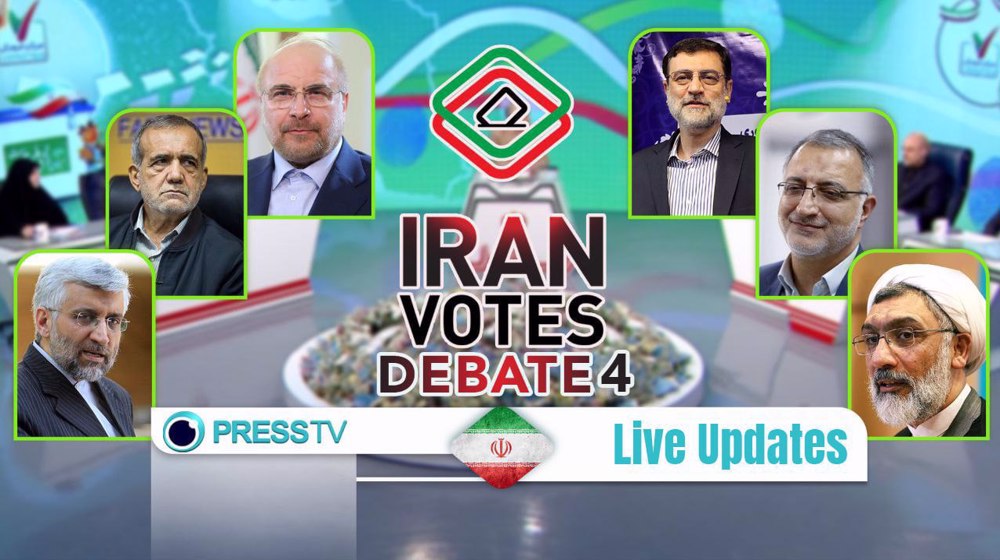
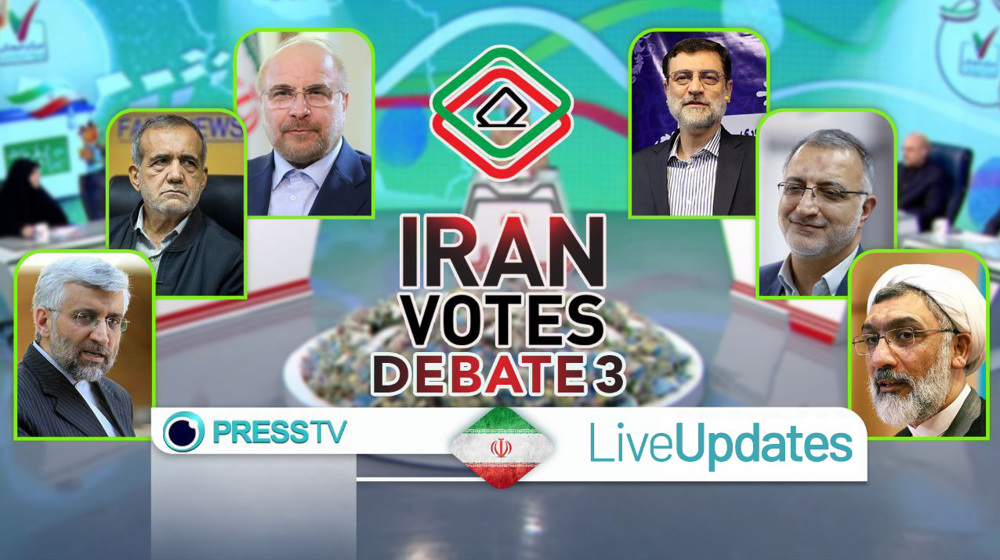
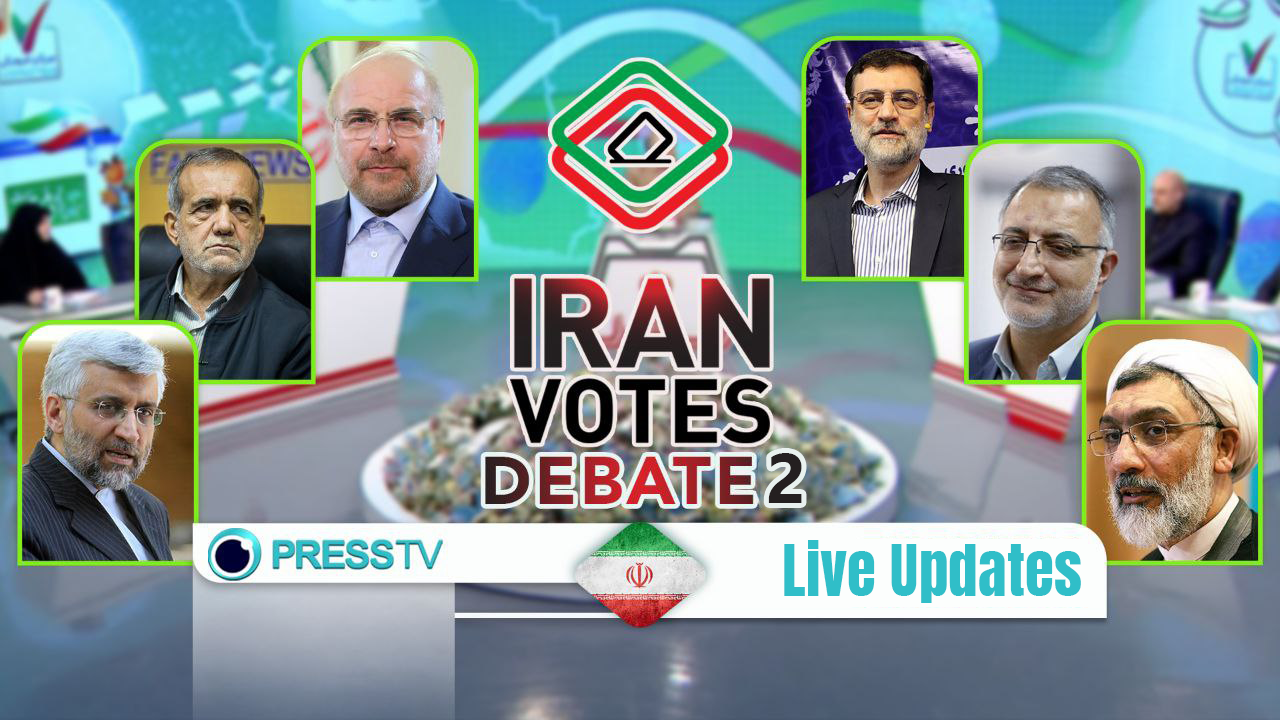
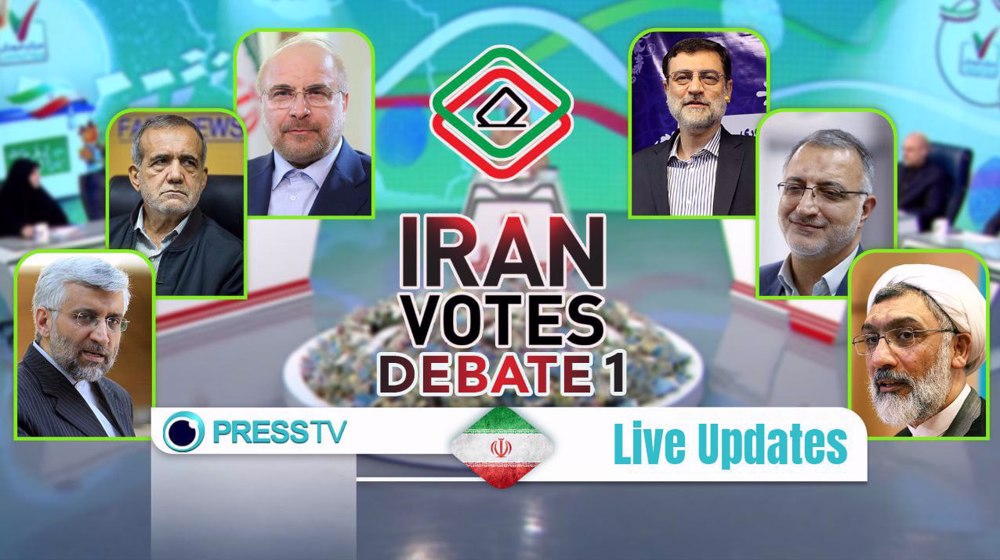
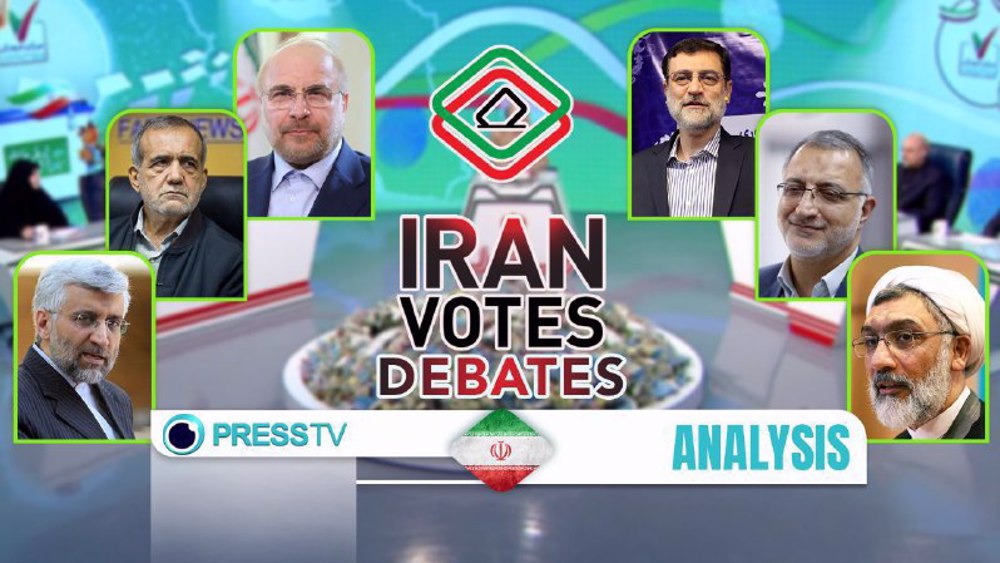
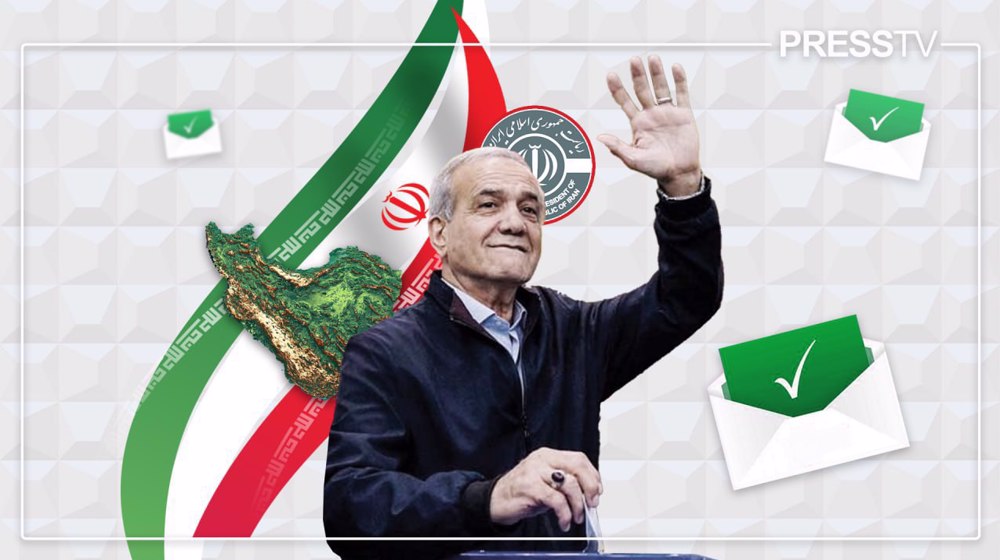
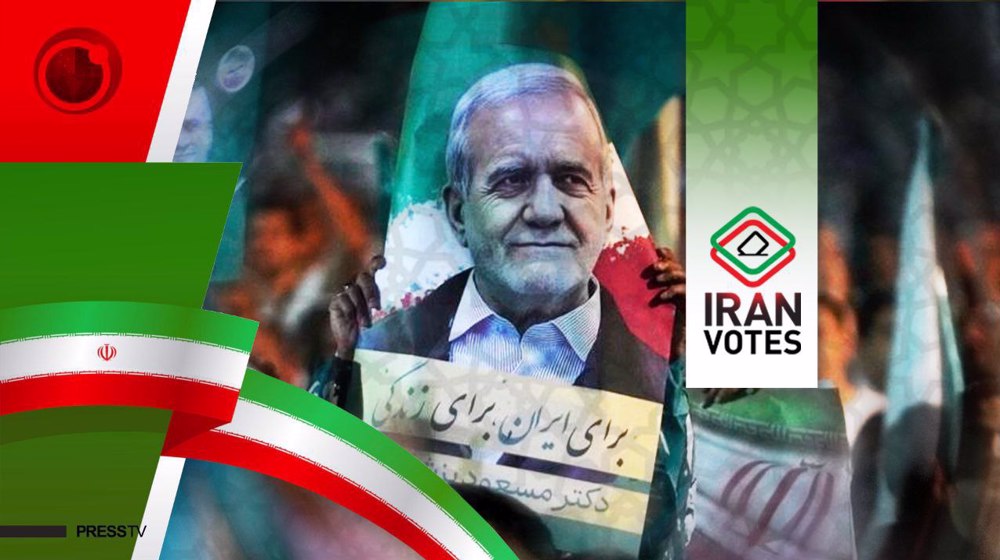
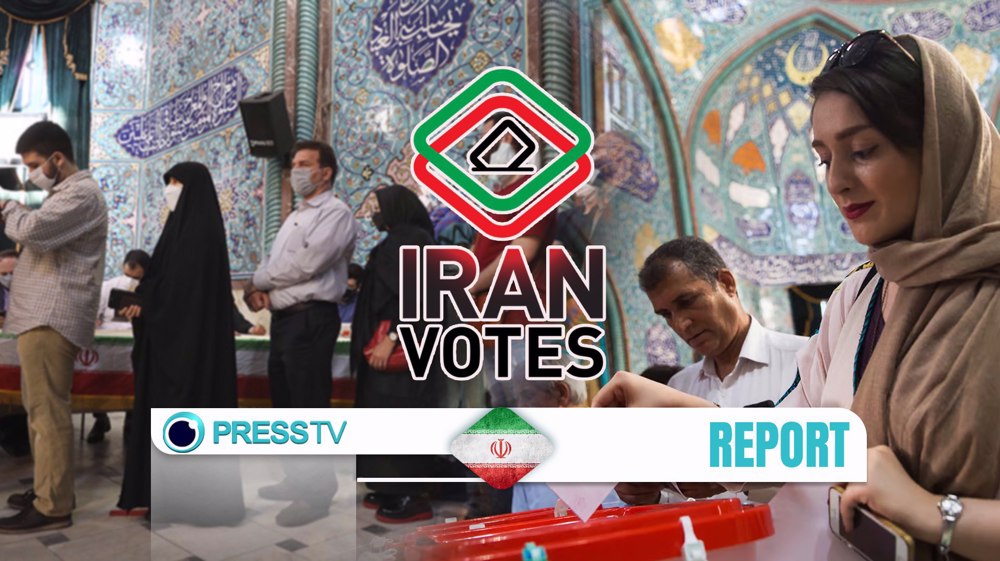




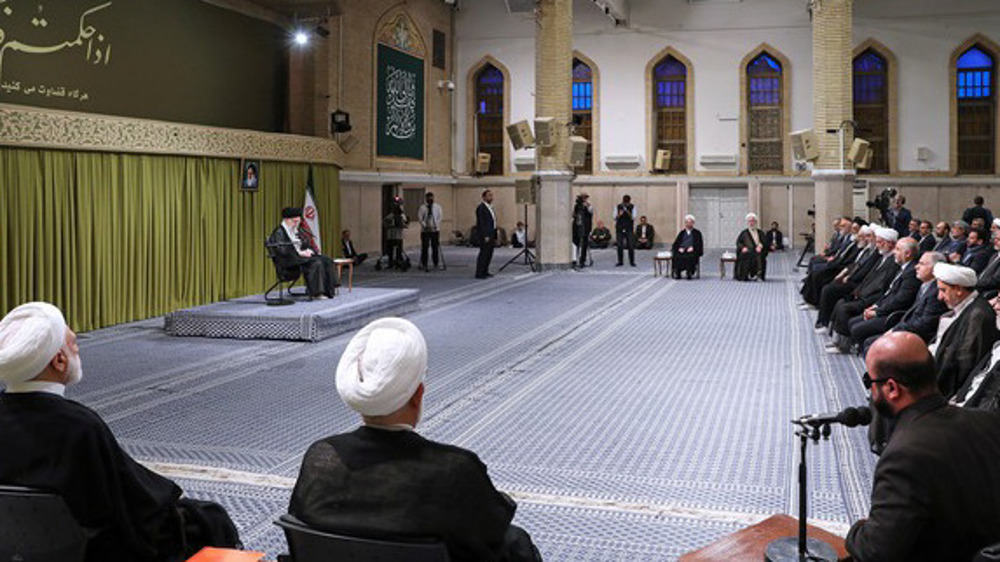

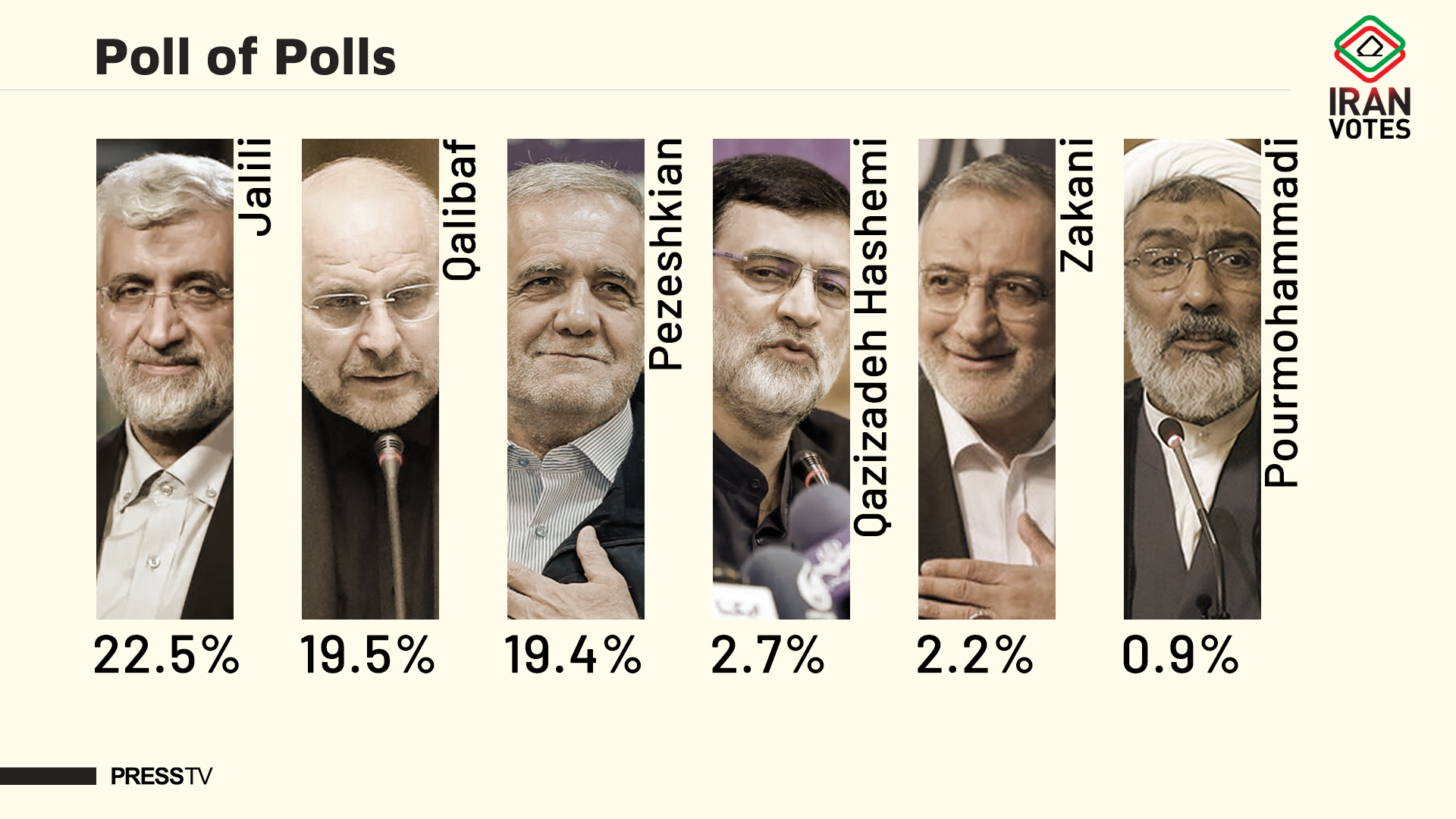


 This makes it easy to access the Press TV website
This makes it easy to access the Press TV website